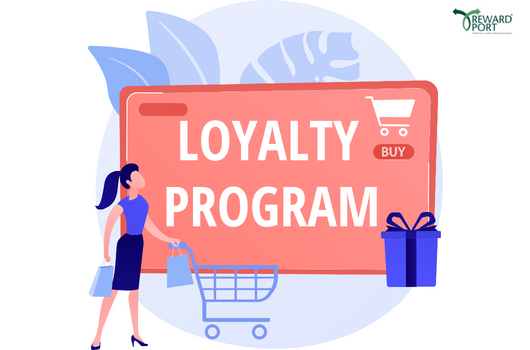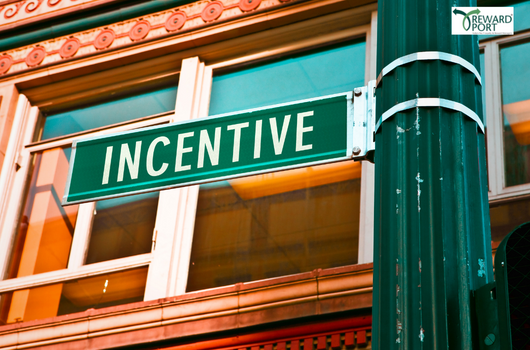Every company must cultivate brand loyalty among their channel partners (distributors and all kinds of resellers). Loyal channel partners are not only a source of recurring revenue for you, but they also act as brand advocates. Channel partners can act as a reliable grapevine with positive word-of-mouth marketing to end customers.
Excellent channel partner loyalty programs are those that provide both transactional and emotional value. To consistently improve channel partner performance, an effective loyalty program should be able to provide meaningful rewards at each milestone.
And, if you want to have a loyalty program or channel incentive for your partners or distributors, as long as it is done correctly, your program will be successful in retaining and rewarding top distributors while maintaining stable revenue streams.
A Checklist for a Successful Channel Incentive Program

One of the most effective loyalty programs for companies that rely on supply chain distribution is channel incentive. It is designed to motivate and reward employees of manufacturers and vendors, such as distributors, resellers, and dealers, for their efforts.
Most large consumer goods manufacturers rely on these partners to sell their products in fact, 76% of industrial marketers sell their goods to the end consumer via an intermediary.
A checklist of things you can do to create an excellent and effective channel incentive program for your own business
To begin, you must select the type of channel program that will be most beneficial to your company. This will give you a better idea of how to reward your partner, the rewards, the mechanism, and so on.
There are two major goals of channel loyalty programs that you should consider pursuing:

- The breadth goal is to broaden the channel to increase the total number of products sold. The goal is to broaden your channels and bring on more partners.
- The depth goal is to increase market share in existing channel partners to avoid channel partner turnover. As a result, unlike the previous goal, the idea here is to get the best results from your current channel partners.
When considering implementing a loyalty program, it is critical to identify qualified channel partners who can help you grow your business. To find qualified partners, consider gathering the following information from them:
– Are they well-versed in your products?
– Do they know enough about the service or product you offer?
– Their level of dedication to your product
– The average number of items sold per month or year
– Current interactions with your competitors
Once you have a better understanding of your partners, consider how you can increase their value in your ecosystem. Determine how much incremental profit you want to see for each partner because “one size does not fit all.”
A wholesaler, for example, maybe more interested in a flat tariff scheme or bulk order discounts.
Better selling tools, such as customized marketing promotion for younger people, shop branding, and so on, will be appreciated by a retailer.
Following the type of channel partners, you desire; you should assess their training requirements. You must, however, first answer the following questions:
- Are your partners providing comparable products or services to yours?
- Do they have their marketing and communication plans?
- Do they review their sales figures regularly?
- Do they review their sales figures regularly?
If most of the answers are no, you should reinforce training or conduct a product knowledge quiz as a way for them to earn points and better understand your products.
- Your objectives must be clear to ensure the success of your loyalty program. These should be SMART objectives (Specific, Measurable, Attainable, Relevant, and Time-bound).
- You can also think about which KPIs (Key Performance Indicators) to highlight to better measure the goals of your program. An example can be:
- Rate of registration: The number of new partners who join your distribution chain. They are critical for generating new revenue sources, particularly for the breadth goal mindset.
How to calculate the lifetime value of a channel partner?

Channel partner lifetime value = average order value multiplied by the number of iterations per year multiplied by the average retention time (years)
The retention rate of your channel partners is important. The formula for calculating it would be:
RR = (CE-CN)/CS * 100
CE – At the end of the period, the number of channel partners
CN – The total number of channel partners acquired during the period
CS – The number of channel partners at the beginning of the period
1. lifetime value of a channel partner
The redemption rate is calculated as the number of coupons redeemed divided by the number of coupons issued. The data will paint a complete picture of how important the program is to your partner.
2. Repeat purchase rate
This metric is critical for determining consumer loyalty. You can also estimate your sales volume.
This metric is calculated using the following formula:
The repeat purchasing rate is calculated as the number of channel partners who have shopped more than once divided by the total number of channel partners.
3. Net promoter score
This metric computes your clients’ satisfaction with your company. You must create some key questions using a 0-10 scale. Ask your partners those questions, and once you have their responses, sort them into the following groups:
Promoters: Partners who are extremely likely to recommend your products.
Passives: Partners who are pleased but will not recommend your products.
Detractors: Dissatisfied partners who could harm your company’s reputation.
Working with a loyalty platform is critical, particularly if you have a medium to large enterprise with thousands of partners across the country.
- Communication is an essential part of any channel loyalty program. Our recommendations are as follows:
- Create a unified and proactive communication strategy: what messages do you want to communicate to your partners and how frequently do you want to communicate with them?
- Segment your partners: By segmenting your partners, you can tailor your communication to make your message more relevant.
- Direct communication: To build a stronger relationship, it is also necessary to communicate directly or online.
Frequently Asked Questions
What are the key objectives of loyalty programs?
Retailers and other businesses that sponsor loyalty program offer rewards, discounts, and other special incentives to attract and retain customers. They are intended to encourage repeat business by providing a reward for store/brand loyalty.
What should a loyalty program include?
A customer loyalty program is an e-commerce marketing strategy that rewards loyal customers who interact with a brand on a regular basis. Customer loyalty programs are intended to encourage repeat purchases by providing members with discounts, special offers, VIP events, and other benefits.





